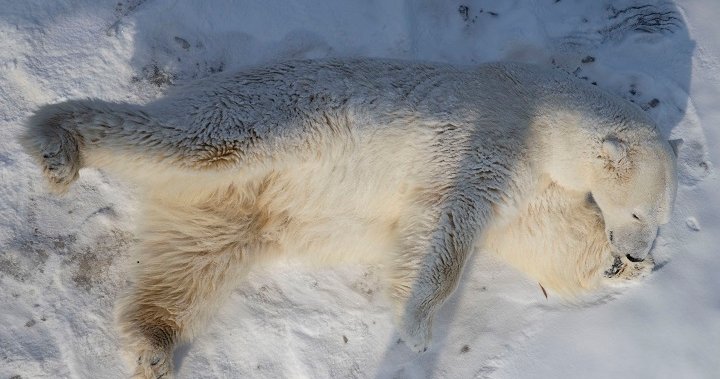
Polar bear experts say killing animal in Quebec was necessary, standard practice
Global News
Polar bear expert Ian Stirling says the bear most likely ended up in Gaspé by swimming to the peninsula or floating south on a piece of ice from Newfoundland.
It was necessary to shoot dead instead of relocate a polar bear found wandering on Quebec’s Gaspé peninsula over the weekend, wildlife experts said Monday.
Government officials didn’t have the proper equipment or the tranquillizers needed to handle the 650-pound animal, Sylvain Marois with Quebec’s Wildlife Department said said in an interview.
“We are equipped for black bears, moose but a polar bear, that’s double the size of a black bear,” Marois said.
The bear was killed to ensure public safety, he said, after it was spotted in a wooded area Saturday near the town of Madeleine-Centre, Que., located about 580 kilometres northeast of Quebec City, on the south shore of the St. Lawrence River.
Wildlife officials say they don’t know where the bear came from, but Ian Stirling, one of the world’s foremost polar bear experts and adjunct professor at the University of Alberta’s department of biological sciences, said the bear’s large size suggests it had been feeding around the South Labrador Sea, where food is abundant.
“There’s only one place where it could be that fat this early,” Stirling said in an interview Monday. “Anywhere else in the Arctic, they are usually a little bit on the thin side — but this one was very fat.”
He said the bear most likely ended up in Gaspé by swimming to the peninsula or floating south on a piece of ice from Newfoundland. It’s very normal, Stirling explained, for polar bears, especially males, to wander and explore.
“Though not many bears find their way out to the unstable edge of the pack ice, those that do find their way into that general area feed very well and put on a lot of weight in a short time,” he said.
